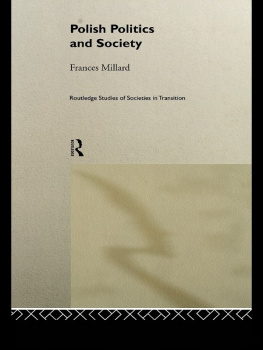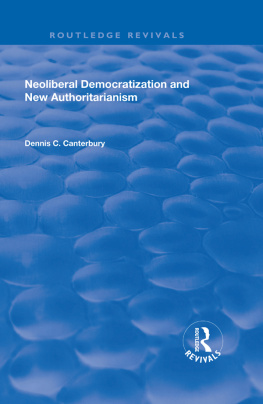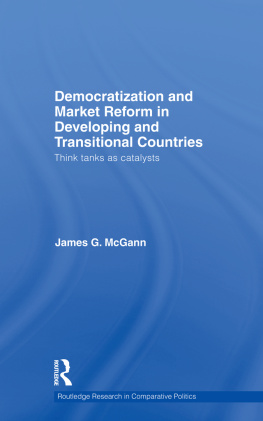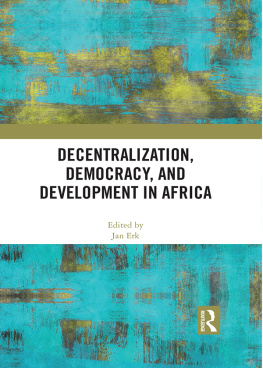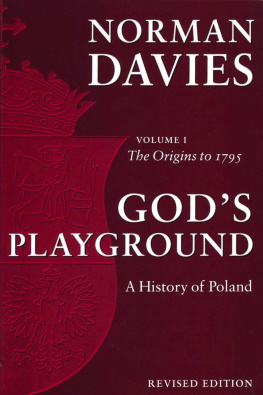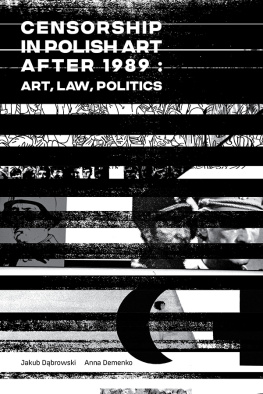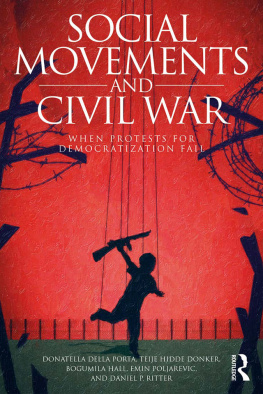Frances Millard - Polish Politics and Society
Here you can read online Frances Millard - Polish Politics and Society full text of the book (entire story) in english for free. Download pdf and epub, get meaning, cover and reviews about this ebook. City: London, year: 1999, publisher: Routledge, genre: Science. Description of the work, (preface) as well as reviews are available. Best literature library LitArk.com created for fans of good reading and offers a wide selection of genres:
Romance novel
Science fiction
Adventure
Detective
Science
History
Home and family
Prose
Art
Politics
Computer
Non-fiction
Religion
Business
Children
Humor
Choose a favorite category and find really read worthwhile books. Enjoy immersion in the world of imagination, feel the emotions of the characters or learn something new for yourself, make an fascinating discovery.
- Book:Polish Politics and Society
- Author:
- Publisher:Routledge
- Genre:
- Year:1999
- City:London
- Rating:3 / 5
- Favourites:Add to favourites
- Your mark:
- 60
- 1
- 2
- 3
- 4
- 5
Polish Politics and Society: summary, description and annotation
We offer to read an annotation, description, summary or preface (depends on what the author of the book "Polish Politics and Society" wrote himself). If you haven't found the necessary information about the book — write in the comments, we will try to find it.
Polish Politics and Society — read online for free the complete book (whole text) full work
Below is the text of the book, divided by pages. System saving the place of the last page read, allows you to conveniently read the book "Polish Politics and Society" online for free, without having to search again every time where you left off. Put a bookmark, and you can go to the page where you finished reading at any time.
Font size:
Interval:
Bookmark:
This book charts the Polish road to democracy and the market economy since the first non-communist prime minister took office in the summer of 1989. A comprehensive analysis examines the shared communist legacy, the common tasks of post-communist transformation and Polands own specific characteristics. Frances Millard addresses key issues of political, social and economic development including:
- the process of shaping a new constitutional order and difficult issues of institution-building
- the role of the independent trade union Solidarity
- the leadership of Lech Walesa
- continuity in foreign and economic policy after 1989
- the position of the communist-successor social democratic party and its peasant ally
- ideological divisions in social policy and the influence of the Catholic Church
- elections and the development of a new party system
- the rule of law and the status of civil liberties
- the nature of political participation
The primary focus is on democratization in Poland, but the postcommunist transition is treated as a multi-layered set of interdependent political, social and economic processes. Millard analyses the wider interplay of structural factors and external influences and shows how these limited the autonomy of political actors in Poland.
Polish Politics and Society will be an essential reference for those researching the politics of transition in Poland and beyond.
Frances Millard is Senior Lecturer in the Comparative Politics of the Visegrad States at the University of Essex. She has published widely on communist and post-communist political development.
TRANSITION
Bert van Selm
DEVELOPMENT
Polands incomplete transition
Edited by Jan Winiecki
Revolution, democracy and natural rights
Arista Maria Cirtautas
Local strategies and regional response in Eastern Europe and the former Soviet
Union
Edited by Sue Bridger and Frances Pine
EASTERN EUROPE
Edited by Stephen Wegren
A policy model for Poland
Kanhaya L.Gupta and Robert Lensink
Opportunities and limits of transformation
Jozef van Brabant
Rural political economy in post-communist socialist societies
Edited by Ivan Szelenyi
State and nation building
Taras Kuzio
Environmental aid, innovation and evolutionary political economics
Mikael Sandberg
EUROPE
Management and transformation in the Czech Republic
Ed Clark and Anna Soulsby
Frances Millard
SOCIETY

by Routledge
11 New Fetter Lane, London EC4P 4EE
This edition published in the Taylor & Francis e-Library, 2003.
by Routledge
29 West 35th Street, New York, NY 10001
or utilised in any form or by any electronic, mechanical, or by other means,
now known or hereafter invented, including photocopying and recording,
or in any information storage or retrieval system, without permission in
writing from the publishers.
A catalogue record for this book is available
from the British Library
Millard, F. (Frances)
Polish politics and society/Frances Millard.
p. cm.
Simultaneously published in the USA and Canada.
Includes bibliographical references (p. ).
ISBN 0-415-15903-2 (hard)
1. Political culturePoland. 2. Political participationPoland.
3. DemocracyPoland. 4. PolandEconomic policy1990 5. Post
-communismPoland. 6. PolandPolitics and government1989
7. PolandSocial conditions1980 I. Title.
JN6766.M55 1999
9912745
306.2 09438 09049dc21 CIP
ISBN 0-415-15903-2 (Print Edition)
eISBN: 978-1-13472-446-8
At the end of 1998 Poland was completing the tenth year of the intense transformation inaugurated throughout Central and Eastern Europe during the annus mirabilis of 1989. For the second time in the twentieth century political lites had set out to remould the fundaments of the political, social and economic fabric into a new weave. The communist project had cast doubt on human capacities for such wholesale social engineering from above; indeed, its postulated egalitarian emancipation had often been dismissed as a Utopian violation of some basic features of human nature. In the new context, if the blueprint was torn and blurred, at least the neighbours had demonstrated its practical feasibility. Throughout Western Europe capitalist liberal democracy reigned supreme. For all their flaws and individual variations, these European states appeared to have generated the most prized goals of all: economic prosperity, individual freedom, social security and peaceful inter-state relations. Moreover, Western states, along with international organizations such as the Council of Europe and especially the European Community, declared themselves willing to assist the process of changing (to be like them) with aid, credits, advisers and training.
Font size:
Interval:
Bookmark:
Similar books «Polish Politics and Society»
Look at similar books to Polish Politics and Society. We have selected literature similar in name and meaning in the hope of providing readers with more options to find new, interesting, not yet read works.
Discussion, reviews of the book Polish Politics and Society and just readers' own opinions. Leave your comments, write what you think about the work, its meaning or the main characters. Specify what exactly you liked and what you didn't like, and why you think so.

